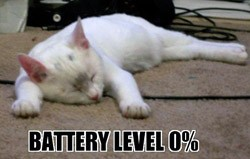
Following the lead of Japanese manufacturers such as
Toyota and
Nissan, Volkswagen has announced a major deal with Sanyo to produce lithium-ion batteries. The two companies already have ties, as VW uses Sanyo's nickel-metal hydride batteries in its current hybrid vehicles, such as the upcoming Audi Q7 hybrid. Li-ion batteries are the current cream-of-the-crop when it comes to storing electricity and VeeDub has plans to begin offering vehicles with the high-tech copper tops as early as 2009.
Unlike Toyota and Nissan, which have created jointly run manufacturing plants with their battery suppliers, Sanyo will be going it alone with an 80 billion yen, or $769 million, investment in order to expand production of its li-ion batteries by 2015, at which time it plans on producing 15-20,000 units per year. Sanyo also happens to provide nickel-metal hydride batteries for the Ford Escape Hybrid and the Honda Civic Hybrid.
[Sources: Volkswagen,
The Detroit News]
Press Release:
Volkswagen Working on High-Performance Energy Storage
Dynamic partnership between the Volkswagen Group and Sanyo
Wolfsburg, 28 May 2008 - Agreement has been reached on a co-operation which sees Volkswagen joining forces with Sanyo, one of the world's leading developers of rechargeable batteries, to work on new and extremely efficient high-performance storage systems based on lithium-ion technology.
"Our focus in future," says Prof Martin Winterkorn, CEO of the Volkswagen Group, "will be directed more strongly at making electrically powered automobiles alongside ones driven by more efficient combustion engines. Drivetrain electrification is the way forward if we wish to secure mobility in tomorrow's world. This will involve energy recovery. The whole idea will be to no avail, however, as long as we do not have powerful energy storage systems at our disposal and as long as vehicle operations are not in tune with customer demands. This cooperation is an important step for us," Winterkorn adds.Emissions-free travel in an all-electric operating modus is already possible today, though only at limited speeds and over short distances. That makes it all the more important to develop new accumulators with the capacity, size, weight and cost attributes which will enable them to be used more efficiently in tomorrow's automobiles. Lithium-ion technology, already very successfully used in communications electronics and portable computers, has the potential to satisfy even the particularly exacting demands placed on electro-traction systems in motor vehicles. Back in March, at the Geneva Motor Show, Volkswagen showcased its Golf TDI Hybrid design study, which demonstrated just how much potential for energy reduction there is when you combine high-tech-diesel, electric-drive and 7-speed-DSG technology. Conceived as a powerful full-hybrid vehicle, the Golf TDI Hybrid can be operated using combustion-engine power only or using a combination of combustion and electric drive or using E-drive – i.e. the powerful and energy-efficient combination of TDI technology and an electric motor. The A1 project quattro presented by Audi at the most recent Tokyo Motor Show features a powertrain already designed to cover a distance of 100 km using this innovative storage method. The Group hopes to be able to employ lithium-ion technology in its first vehicles by 2010.
[ Via:
Autoblog (Volkswagen) ]
[ Tag: audi, audi hybrid, audi-hybrid, AudiHybrid, volkswagen, volkswagen hybrid, volkswagen-hybrid, VolkswagenHybrid, vw, vw hybrid, vw-hybrid, VwHybrid ]
0 comments:
Post a Comment